How to Survive Without Running Water
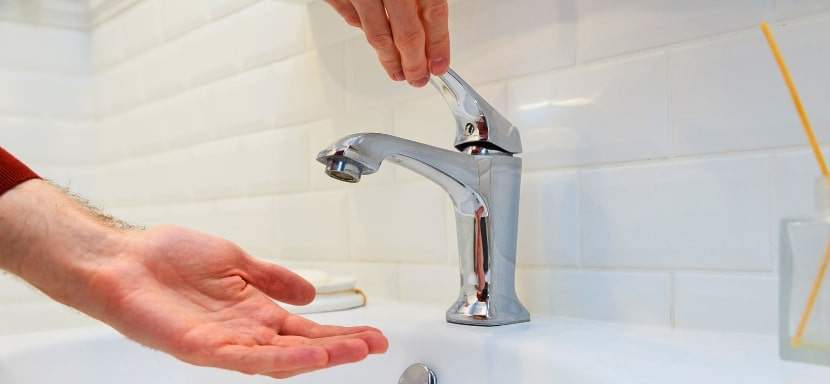
Guide to Living Without Running Water
Overcome the challenges of living without running water with these practical solutions.
Surviving without running water can be daunting, but it is feasible with proper planning and resourcefulness. Whether you’re dealing with a temporary outage or a long-term situation, knowing how to manage without this vital resource is crucial.
This article will explore strategies, tips, and insights to help you navigate life without running water efficiently and safely.
Key Points
- Store and Purify Water: Collect rainwater, store it in containers, and purify it by boiling filtration or purification tablets.
- Maintain Hygiene with minimal water: To stay clean, use wet wipes, hand sanitizers, and sponge baths, and brush your teeth with minimal water or mouthwash.
- Adapt and Conserve: Prioritize tasks that require water, use greywater for non-drinking purposes, and employ water-saving techniques in daily activities.
10 Tips for Living Without Running Water
This list provides ten quick and practical tips for living without running water, from storing rainwater and using purification tablets to maintaining hygiene with minimal water and cooking efficiently.
These strategies help you manage water resources effectively and maintain cleanliness, health, and sanitation in challenging situations.
- Store Rainwater: Set up barrels to collect and store rainwater for various uses.
- Use Water Purification Tablets: Keep water purification tablets handy to make stored water safe to drink.
- Take Sponge Baths: Clean yourself with minimal water using a sponge or washcloth.
- Hand Sanitizer for Clean Hands: Use hand sanitizer to keep hands clean without using water.
- Opt for Waterless Hygiene Products: Utilize wet wipes and dry shampoo to maintain personal hygiene.
- Cook with Minimal Water: Choose meals that require little to no water, such as canned or dried foods.
- Utilize Greywater: Reuse water from washing dishes or clothes to flush toilets or water plants.
- Install a Composting Toilet: Consider a composting toilet to manage sanitation needs without water.
- Ration Water Use: To extend your supply, measure and limit water usage for essential tasks.
- Communicate with Neighbors: Share resources and information with neighbors to support each other during water shortages.
Finding Water Sources When the Water Goes Out
Knowing where to find alternative water sources is crucial for survival when your home lacks running water.
Here are several reliable methods to ensure you can access water in an emergency.
- Rainwater Collection: Set up barrels or buckets outside to collect rainwater, which can be used for drinking, cooking, and cleaning after proper purification.
- Natural Water Bodies: Locate nearby rivers, streams, lakes, or ponds. Always purify this water before use to ensure it’s safe.
- Water from Appliances: Drain water from your hot water heater or pipes; this water is typically clean and safe to drink after filtration.
- Melting Ice: If you can access ice, melt it for potable water. Ensure the ice is from a clean source.
- Bottled Water Reserves: Stockpile bottled water as part of your emergency preparedness. Rotate stock regularly to ensure freshness.
- Community Resources: Check with local authorities or community centers for emergency water distribution points.
- Commercial Water Purifiers: Use portable water purifiers or life straws to filter water from various sources.
- Underground Wells: If you have access to a well, use it as a reliable source of fresh water. Ensure the well is maintained and safe.
- Snow Collection: In colder climates, collect and melt snow for drinking water. Purify the melted water before consumption.
- Nearby Pools or Hot Tubs: As a last resort, water from pools or hot tubs can be filtered and treated to make it safe for non-drinking purposes.
- Toilet Tanks: Use the water stored in the tanks on the back of your toilets. This water is usually clean and can be used for drinking after proper purification if it doesn’t contain bleach tablets.
How to Survive Without Running Water
When faced with a situation where running water is unavailable, the first step is to stay calm and assess your resources. Understanding how to find and store water, maintain hygiene, and use water efficiently will be pivotal in surviving comfortably. Let’s delve into the comprehensive guide on survival without running water.
Emergency Water Sources
Finding alternative water sources is critical. Rainwater, natural springs, and lakes are potential sources. Knowing how to purify this water to make it safe for consumption is essential. Boiling, water purification tablets, or filtration systems can ensure your water is potable.
Water Storage and Conservation
Storing water effectively can make a significant difference. Large containers, buckets, and even bathtubs can be used to store water. It’s also essential to ration water use to extend your supply. Simple measures like turning off taps while not in use, fixing leaks, and using water-saving devices can be highly beneficial.
Purifying and Treating Water
Ensuring that your water is safe to drink is paramount. Boiling is one of the most effective methods to kill pathogens. Alternatively, water purification tablets or portable water filters can be used. In an emergency, even household bleach can purify water when used correctly.
Maintaining Hygiene Without Running Water
Minimal water can be used to maintain personal hygiene. Wet wipes, hand sanitizers, and sponge baths are valuable alternatives. For dental hygiene, brushing teeth with minimal water or using mouthwash can suffice.
Cooking Without Running Water
Preparing meals without running water requires creativity. Opt for meals with minimal cooking water, such as canned foods, dried fruits, and nuts. When cooking is necessary, use the least amount of water possible and try to reuse water where safe, such as boiling vegetables and using the water for soups.
Toilet Solutions Without Running Water
Managing sanitation without running water involves alternative toilet solutions. Composting toilets, portable camping toilets, and even makeshift solutions like digging a latrine can be practical options. Maintaining hygiene and properly disposing of waste is essential to avoid health issues.
Laundry Without Running Water
Washing clothes can be challenging without running water. Handwashing in a basin or bucket with minimal water and biodegradable soap is feasible. Prioritize essential clothing and use as little water as possible.
Did You Know?
During water outages, the water stored in your hot water heater and plumbing can be a crucial emergency resource.
Gardening and Watering Plants
If you have a garden, using water efficiently is critical. Mulching, drip irrigation, and using greywater (from washing dishes or clothes) can help keep your plants hydrated. Focus on watering early in the morning or late in the evening to reduce evaporation.
Using Greywater
Reusing greywater can extend your water supply. Water from bathing, laundry, and washing dishes can be used for flushing toilets or watering plants. Ensure that the greywater does not contain harmful chemicals or pathogens.
Conserving Water in Daily Activities
Incorporate water-saving techniques in everyday tasks. For instance, use a bowl to wash dishes instead of running water, take shorter showers, and turn off the tap while brushing your teeth. These small steps can significantly reduce water usage.
Emergency Preparedness and Planning
Preparation is crucial. Always have an emergency water supply stored and a plan in place. Know where to find alternative water sources and how to purify them. The right equipment, such as water filters and purification tablets, is also essential.
Building a Rainwater Harvesting System
Setting up a rainwater harvesting system can provide a sustainable water source. Collecting and storing rainwater using barrels or tanks ensures a backup supply. Ensure the collected water is purified before use.
Utilizing Community Resources
Community resources can be invaluable during a prolonged water outage. Local water distribution centers, neighbors, and community shelters may provide necessary water supplies. Stay informed about local resources and relief efforts.
Adapting to a New Routine
Adjusting your routine to use less water will become second nature over time. Prioritize tasks that require water and find alternatives for those that don’t. Flexibility and creativity will help you adapt smoothly.
Staying Informed and Connected
Stay informed about the situation and any updates on water restoration. Communicate with family, friends, and neighbors to share resources and information. Cooperation and support from your community can make a significant difference.
Learning from Experiences
Each experience without running water can teach valuable lessons. Reflect on what worked, what didn’t, and how you can improve your preparedness for future incidents. Document your strategies and share them with others who may benefit from them.
Psychological Resilience
Maintaining a positive attitude and mental resilience is crucial. Living without running water can be overwhelming, but staying optimistic and focusing on solutions will help you navigate the situation better.
Sustainable Living Practices
Sustainable living practices can reduce water consumption and prepare you for future disruptions. Using water-efficient appliances, practicing water conservation, and educating others can contribute to a more sustainable lifestyle.
Government and NGO Assistance
Government agencies and NGOs often assist with prolonged water outages. Knowing how to access these resources and what support is available can be lifesaving. Stay updated with local news and relief programs.
Long-term Solutions and Innovations
Exploring long-term solutions such as installing a well, solar water distillation, or advanced water filtration systems can provide a reliable water source. Innovations in water technology continue to emerge, offering new ways to secure and manage water supplies.
Practical Tips for Daily Survival
Practical tips for daily survival include carrying a water bottle, using disposable or biodegradable dishware, and staying hydrated by consuming foods with high water content, like fruits and vegetables.
Financial Management During a Crisis
Managing finances during a water crisis is crucial. Budgeting for water purchases, potential medical expenses, and other necessities will ensure financial stability.
Maintaining Health and Hydration
Staying healthy and hydrated is paramount. Drink enough water, maintain a balanced diet, and monitor your health. Dehydration and poor hygiene can lead to serious health issues, so prioritize your well-being.
Survival Skills and Knowledge
Learning survival skills such as foraging for food, identifying edible plants, and basic first aid can be beneficial. These skills increase self-reliance and prepare you for various emergencies.
Community Building and Support
Building a strong community network can provide emotional and practical support. Sharing resources, skills, and knowledge within your community fosters resilience and collective strength.
Environmental Awareness and Conservation
Being aware of your environmental impact and practicing conservation helps preserve natural resources. Educate yourself and others about sustainable practices and the importance of water conservation.
FAQs About Surviving a Water Outage
How can I store water for emergencies?
It is ideal to store water in clean, food-grade containers. Use large barrels, tanks, or even bathtubs. Ensure the containers are sealed tightly and kept in a cool, dark place.
What are the best ways to purify water?
Boiling water is highly effective in killing pathogens. Water purification tablets and portable filters are also excellent options. In emergencies, a few drops of household bleach can purify water.
How do I maintain personal hygiene without running water?
Use wet wipes, hand sanitizers, and sponge baths to maintain cleanliness. Brush teeth with minimal water or use mouthwash. Prioritize essential hygiene tasks.
What foods require minimal water to prepare?
Canned foods, dried fruits, nuts, and pre-packaged meals require little water. Opt for these to conserve your water supply.
How can I manage toilet needs without running water?
Consider using composting toilets, portable camping toilets, or digging a latrine. Ensure proper hygiene and waste disposal to avoid health issues.
Can greywater be used for other purposes?
Yes, greywater from bathing, laundry, and dishwashing can be used to flush toilets or water plants. However, it should not contain harmful chemicals or pathogens.
Conclusion: Coping with the Absence of Running Water
Surviving without running water presents challenges but is manageable with the proper knowledge and preparation. From finding alternative water sources to maintaining hygiene and adapting daily routines, these strategies will help you effectively navigate life without running water.
Preparation, resourcefulness, and community support are crucial to overcoming this hurdle. Stay informed, stay prepared, and stay resilient.
Historical Facts About Water Outages
Water outages have significantly impacted societies, economies, and public health.
These historical facts illustrate how water scarcity and outages have shaped human civilization and responses to such crises.
- Ancient Rome: The fall of the Roman Empire was partly due to the degradation of its extensive aqueduct system, leading to water shortages.
- Maya Civilization: The decline of the Maya civilization is linked to prolonged drought and water management failures.
- Medieval Europe: Water scarcity during medieval times often led to outbreaks of diseases like cholera and dysentery.
- Great London Fire (1666): A lack of water pressure due to outdated infrastructure hampered efforts to combat the fire.
- Dust Bowl (1930s): Severe drought in the U.S. Midwest caused widespread water shortages, exacerbating economic hardship during the Great Depression.
- Tokyo, WWII: Allied bombings during World War II destroyed much of Tokyo’s water supply infrastructure, leading to severe shortages.
- Cape Town Crisis (2018): Cape Town faced a severe water crisis, nearly reaching “Day Zero” when municipal water supplies were shut off.
- Flint Water Crisis (2014-present): Flint, Michigan, faced a significant public health crisis due to lead contamination in the water supply after a switch to a cheaper source.
- California Drought (2012-2016): Prolonged drought led to widespread water restrictions and a reevaluation of water use policies in the state.
- Syrian Civil War: Water shortages exacerbated tensions, contributing to the outbreak of the Syrian civil war.
- Iran (2001-present): Chronic water shortages have been a significant issue due to overuse and poor water management.
- South Asia (2009): A severe water crisis hit South Asia, impacting millions in India, Pakistan, and Bangladesh.
- Cholera Outbreak in Yemen (2016-present): Ongoing war has led to severe water shortages, causing one of the worst cholera outbreaks in history.
- Nairobi (2017): Nairobi faced a significant water shortage due to prolonged drought and insufficient infrastructure.
- Ancient Mesopotamia: The fall of the Akkadian Empire is believed to be partially due to a severe, long-term drought.
- Darfur Conflict: Water scarcity has been a significant factor in the ongoing conflict in the Darfur region of Sudan.
- Australia (Millennium Drought): The severe drought from the late 1990s to 2010 led to significant water use reforms and infrastructure projects.
- Las Vegas Water Supply: The Hoover Dam was constructed partly to provide a reliable water source for the growing city.
- Detroit Water Shutoffs (2014): Economic struggles led to widespread water shutoffs, affecting thousands of residents.
More Real Life Scenarios
How to Survive a Layoff
Layoffs feel personal—even when they’re not. One day, you’re responding to Slack messages and forwarding…
How to Survive a Drug Test
I never imagined I’d be so emotionally invested in a paper cup. But there I was, standing under the fluorescent…
How to Survive an Interrogation
If you’ve ever been caught in the crosshairs of an overly enthusiastic mall cop or stared down by someone…
How to Survive a Bachelor Party
A bachelor party is a delicate mix of celebration, chaos, and questionable decision-making, wrapped…
How to Survive Your First Time at the Gym
Walking into a gym for the first time can feel like stepping into an alien world. The machines hum with…
Recent Survival Posts
How to Survive a Layoff
Layoffs feel personal—even when they’re not. One day, you’re responding to Slack messages and forwarding…
How to Survive a Drug Test
I never imagined I’d be so emotionally invested in a paper cup. But there I was, standing under the fluorescent…
How to Survive an Interrogation
If you’ve ever been caught in the crosshairs of an overly enthusiastic mall cop or stared down by someone…
How to Survive a Nightclub Shooting
Nightclubs pulse with life—lights flashing, music pounding, bodies packed tight on the dance floor. It’s a place to…
How to Survive a Bachelor Party
A bachelor party is a delicate mix of celebration, chaos, and questionable decision-making, wrapped…
More Real-Life Survival Scenarios

How to Survive a Drug Test
The Cup, The Room, The Truth I never imagined I’d be so emotionally invested in a paper cup. But there I was, standing under the fluorescent hum of a strip-mall clinic, trying to recall the last time I ate a poppy seed bagel. That’s the thing about drug tests—they...

How to Survive an Interrogation
If you've ever been caught in the crosshairs of an overly enthusiastic mall cop or stared down by someone in a uniform with a clipboard and a glare, you’ve felt it — the chilly fingers of interrogation anxiety. And while most of us imagine interrogation scenes as...

How to Survive a Bachelor Party
A bachelor party is a delicate mix of celebration, chaos, and questionable decision-making, wrapped in the noble intention of sending the groom off into married life with a night he’ll (hopefully) remember. It’s a ritual as old as time—well, as old as men deciding...

How to Survive Your First Time at the Gym
Walking into a gym for the first time can feel like stepping into an alien world. The machines hum with purpose, the regulars move confidently, and you’re left standing there, clutching your water bottle, wondering whether you’re in the right place—or on the right...
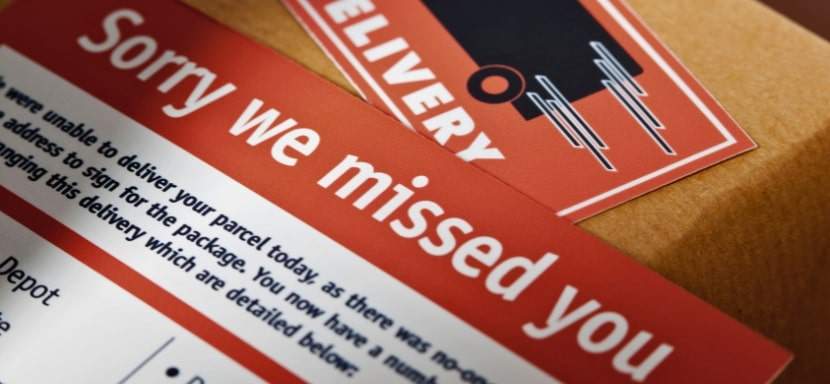
How to Survive a Missed Package Delivery
Life throws curveballs. One moment, you’re eagerly waiting for your package like a kid on Christmas morning, and the next, there’s a smug little note stuck to your door. A missed package delivery. It feels like a breakup letter from the universe. But don’t worry—I’ve...
More Survival Scenarios

How to Survive a Layoff
When the Floor Falls Out: The Reality of a Layoff Layoffs feel personal—even when they're not. One day, you're responding to Slack messages and forwarding emails. Next, you're staring at your monitor as it logs you out... for good. Whether it's a restructuring, a...

How to Survive a Drug Test
The Cup, The Room, The Truth I never imagined I’d be so emotionally invested in a paper cup. But there I was, standing under the fluorescent hum of a strip-mall clinic, trying to recall the last time I ate a poppy seed bagel. That’s the thing about drug tests—they...

How to Survive an Interrogation
If you've ever been caught in the crosshairs of an overly enthusiastic mall cop or stared down by someone in a uniform with a clipboard and a glare, you’ve felt it — the chilly fingers of interrogation anxiety. And while most of us imagine interrogation scenes as...

How to Survive a Nightclub Shooting
Nightclubs pulse with life—lights flashing, music pounding, bodies packed tight on the dance floor. It’s a place to escape, feel the rhythm, and lose yourself in the crowd. But that same energy can turn deadly in seconds, transforming a night of fun into one of the...

How to Survive a Bachelor Party
A bachelor party is a delicate mix of celebration, chaos, and questionable decision-making, wrapped in the noble intention of sending the groom off into married life with a night he’ll (hopefully) remember. It’s a ritual as old as time—well, as old as men deciding...

How to Survive Your First Time at the Gym
Walking into a gym for the first time can feel like stepping into an alien world. The machines hum with purpose, the regulars move confidently, and you’re left standing there, clutching your water bottle, wondering whether you’re in the right place—or on the right...
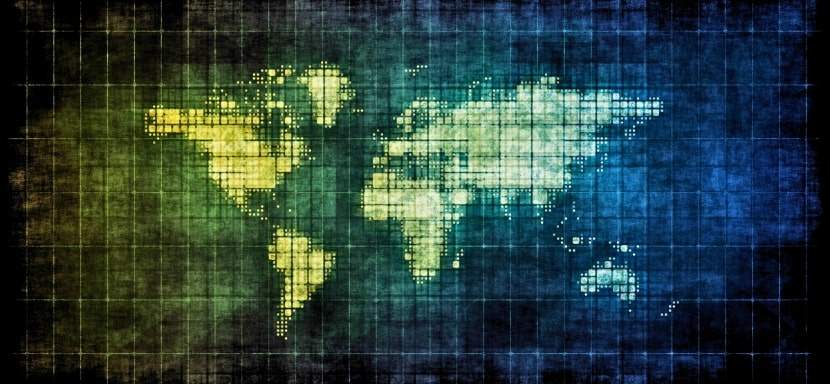
How to Survive a Worldwide Communications Breakdown
Imagine waking up to silence. Your phone doesn’t buzz, your email won’t load, and even your local radio station crackles with static. A worldwide communications breakdown has hit. What next? For many, this doomsday scenario may sound like the opening lines of a...
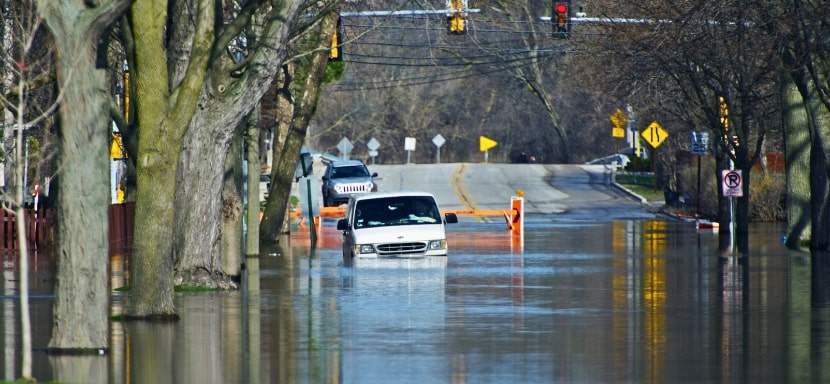
How to Survive a Flash Flood While Driving
Surviving a flash flood while driving requires quick thinking, calmness, and a solid plan to ensure your safety. Preparation can make all the difference between a close call and a catastrophe in emergencies like this. This guide provides practical advice to protect...
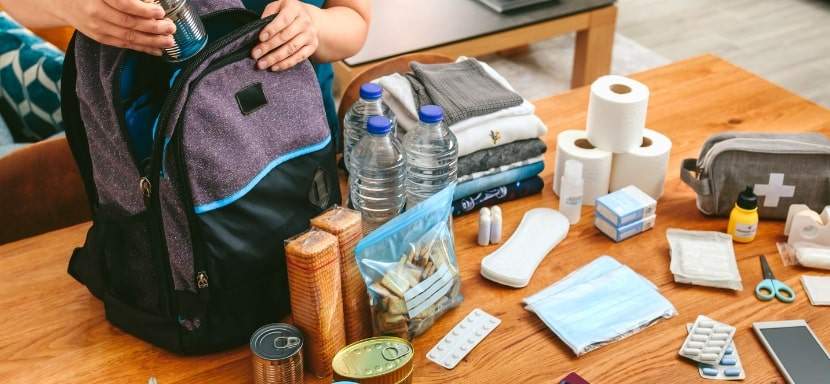
How to Build an Emergency Kit
Emergencies don’t knock politely at the door. They barge in, uninvited, like a distant relative with a penchant for drama, turning your world upside down without warning. Whether it’s a power outage, a natural disaster, or an unexpected evacuation, the key to staying...

How to Protect Yourself From Insects in the Wild
There’s nothing like being out in the wild—birdsong echoing through the trees, the fresh scent of earth, and a deep sense of peace that makes you think, “Ah, this is what life is about.” But then comes the buzzing. Mosquitoes, ticks, and flies swoop in like uninvited...
